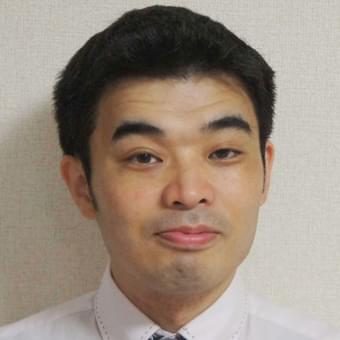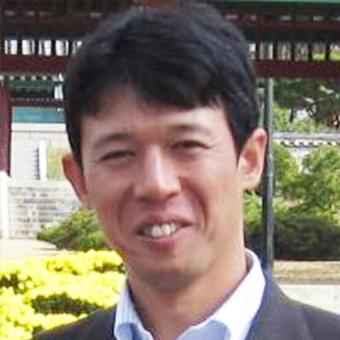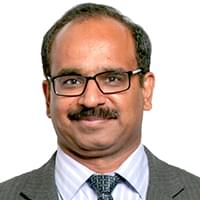This session will be a panel discussion drawing upon the insights of experts from key areas pertaining to responding to and recovering from COVID-19, as well as redesigning systems to minimise the risk of environmental and health crises. The session will have three parts, beginning with a framing presentation by the moderator, who will present on IGES’ integrated analytical framework ‘response, recovery and redesign’ that will guide panellists and the audience to consider actions to address COVID-19 through various lenses. The second part of the session will survey the current situation, especially with respect to the responses in waste/wastewater management and air pollution control, recovery efforts by national and local governments such as economic stimulus packages (which include investments into energy and other relevant sectors), and lifestyle change. The final part of the session will feature a discussion on how current socioeconomic systems can be redesigned to achieve sustainable, resilient and inclusive societies. Based on the understanding that COVID-19 was fundamentally caused by unsustainable interactions between humans and surrounding ecosystems, the final part of the session will also entail a discussion about the way forward for interation between humans and nature.
Research Leader, Sustainability Governance Centre, IGES

Eric Zusman
Research Leader, Sustainability Governance Centre, IGES
Eric Zusman is a Senior Policy Researcher and Area Leader at the Institute for Global Environmental Studies in Hayama, Japan. He holds a Bachelor’s degree in Mandarin Chinese from Rutgers University, a dual Master’s Degree in Public Policy and Asian Studies from the University of Texas at Austin and a Ph.D. in Political Science from the University of California, Los Angeles. For much of the past two decades, he has worked on environmental issues in Asia. This has included publishing articles and book chapters on water scarcity, air pollution regulation, environmental law, and state capacity in Greater China. He has also worked with China’s Yellow River Conservancy Commission and the Chinese Research Academy on Environmental Science. In addition, he has also held research assistantships with the Woodrow Wilson Center’s China Environment Forum in Washington D.C., as well as Taiwan’s Academia Sinica. He is currently serving as a lead author for the sixth assessment report of the Intergovernmental Panel on Climate Change (Chapter 17).
Programme Director, Sustainable Consumption and Production (SCP), IGES

Atsushi Watabe
Programme Director, Sustainable Consumption and Production (SCP), IGES
Dr Watabe received a PhD in Media and Governance at Keio University. Since he has joined IGES he worked for several programmes including the international cooperation programmes to develop climate change policies and the action study on the recovery from the Nuclear Accident in Fukushima. He has led the Coordination Desk of the Sustainable Lifestyles and Education Programme of the UN 10-Year Framework of Programmes on Sustainable Consumption and Production Patterns (One-Planet Network) since 2015. With his background in sociology, he has collaborated with and learned from many community-level initiatives to enable sustainable ways of living.
Policy Advisor, Policy Coherence for Sustainable Development Unit, OECD

Carina Lindberg
Policy Advisor, Policy Coherence for Sustainable Development Unit, OECD
Carina Lindberg is a Policy Advisor in the Policy Coherence for Sustainable Development Unit of the OECD Directorate for Public Governance, where she supports the work on institutional and governance mechanisms for policy coherence and integrated approaches to SDG implementation. She first joined the OECD in 2007 as a Research Associate at the Development Centre and has also gained experience as an analyst in the Development Co-operation Directorate and the Office of the Secretary-General. Prior to joining the OECD, Ms. Lindberg worked for the Swedish Board of Agriculture where she oversaw the administration of preferential trade agreements with developing countries. Ms. Lindberg holds a Masters Degree in International Economics from Jönköping University in Sweden.
Programme Coordinator, Strategic Management Office, IGES

Erin C. Kawazu
Programme Coordinator, Strategic Management Office, IGES
Erin is a programme coordinator at the Strategic Management Office of the Institute for Global Environmental Strategies (IGES). She primarily supports IGES involvement in international processes, IGES’ communications and public relations, and stakeholder engagement in English and Japanese. With an academic background in environmental science and public health, she is particularly interested in health and the built environment, and inequities, especially with respect to environmental exposures such as air pollution. Since March, Erin has been greatly involved in IGES’ work on the environmental implications of COVID-19, contributing to the Triple R Framework along with diverse experts at the organisation and co-authoring related publications.
Principal Coordinator, Strategic Management Office, IGES

Satoshi Kojima
Principal Coordinator, Strategic Management Office, IGES
Dr. Satoshi Kojima graduated from the University of Tokyo with a Master of Engineering. After engaging in water and environment related official development assistance (ODA) projects in several countries including Indonesia and Hungary, he studied environmental economics at the University of York in the United Kingdom. After receiving a Ph.D. of Environmental Economics, he joined IGES in 2005 and has engaged mainly in quantitative policy analysis of sustainable development policy in East Asia. He published a book “Sustainable Development in Water-stressed Developing Countries: A Quantitative Policy Analysis” from Edward Elgar Publishing in 2007.
Chair of Research Program “Transformation of Political (Dis-)Order”, German Development Institute

Julia Leininger
Chair of Research Program “Transformation of Political (Dis-)Order”, German Development Institute
Julia Leininger, PhD University of Heidelberg, is Chair of the Research Program “Transformation of political (dis-)order" at the German Development Institute/Deutsches Institut für Entwicklungspolitik (DIE). Her comparative research focuses on explaining political transformation, integrated SDG implementation, social cohesion and international engagement to support democratization with a special focus on African Politics. She published on democracy promotion, religion and politics, regional organisations and SDG implementation. In her research collaborations she aims at bridging different perspectives from social and natural sciences, which are needed to inform a transformation to sustainability. She translates her academic research into policy advice and has engaged in impact measurement on the effectiveness of international governance support and state-building. Her most recent projects focus on of explaining social cohesion, integrating matters of political transformation in scenario analysis as well as governing the sustainability transformation. Julia teaches at Universities Heidelberg and Duisburg-Essen.
Deputy Secretary General, ICLEI – Global and Executive Director, ICLEI – South Asia

Emani Kumar
Deputy Secretary General, ICLEI – Global and Executive Director, ICLEI – South Asia
Emani Kumar has been the Executive Director of ICLEI South Asia since its founding in 2005. He was also appointed as Deputy Secretary General of ICLEI in the year 2013 and is the First Asian to occupy the position in ICLEI. Since Feb 2016, Kumar also heads the Asia LEDS Partnership (ALP) Program. With degrees in Environmental Management from Bradford University, UK; Environmental Planning from School of Planning, CEPT, Ahmedabad and Civil Engineering from Delhi University, Emani has more than twenty four years of professional experience on issues related to climate change policy and planning, local governance, renewable energy and energy efficiency, social accountability, systems management and auditing.
Previously Mr. Kumar has worked with the Confederation of Indian Industry (CII) and also with the National Institute of Urban Affairs (NIUA). Apart from overseeing the organization’s strategic development, he also coordinates various multi-year & small scale projects and research work supported by various donor and UN agencies; State and National governments of India and Research Organizations. He also liaises for various projects like Promoting Low emission Urban Development Strategies in Emerging Economy Countries (Urban LEDS II), CapaCITIES, INTERACT-Bio and more.
In his role as ICLEI Deputy Secretary General, Emani Kumar works with all the offices in Asia, to ensure cohesion in implementation of ICLEI’s agendas and spearhead advocacy activities in the region; he also supports the Secretary General in representing ICLEI at all international forums.